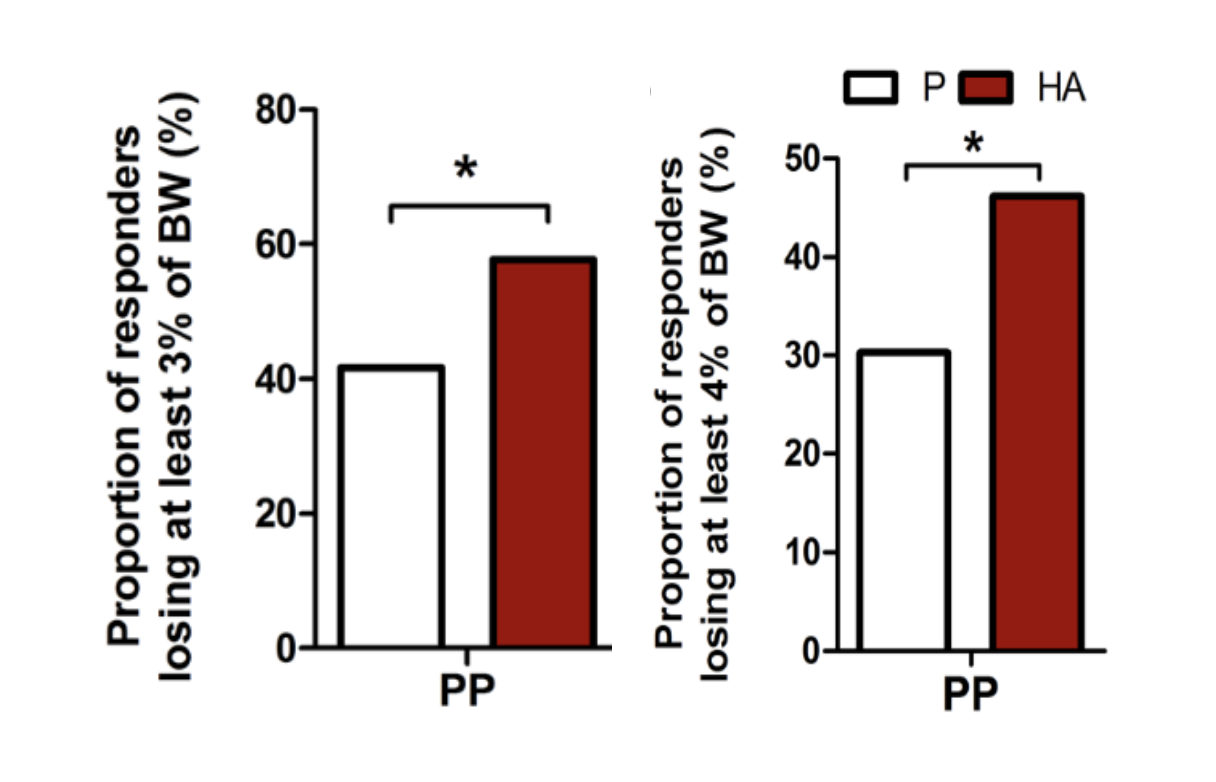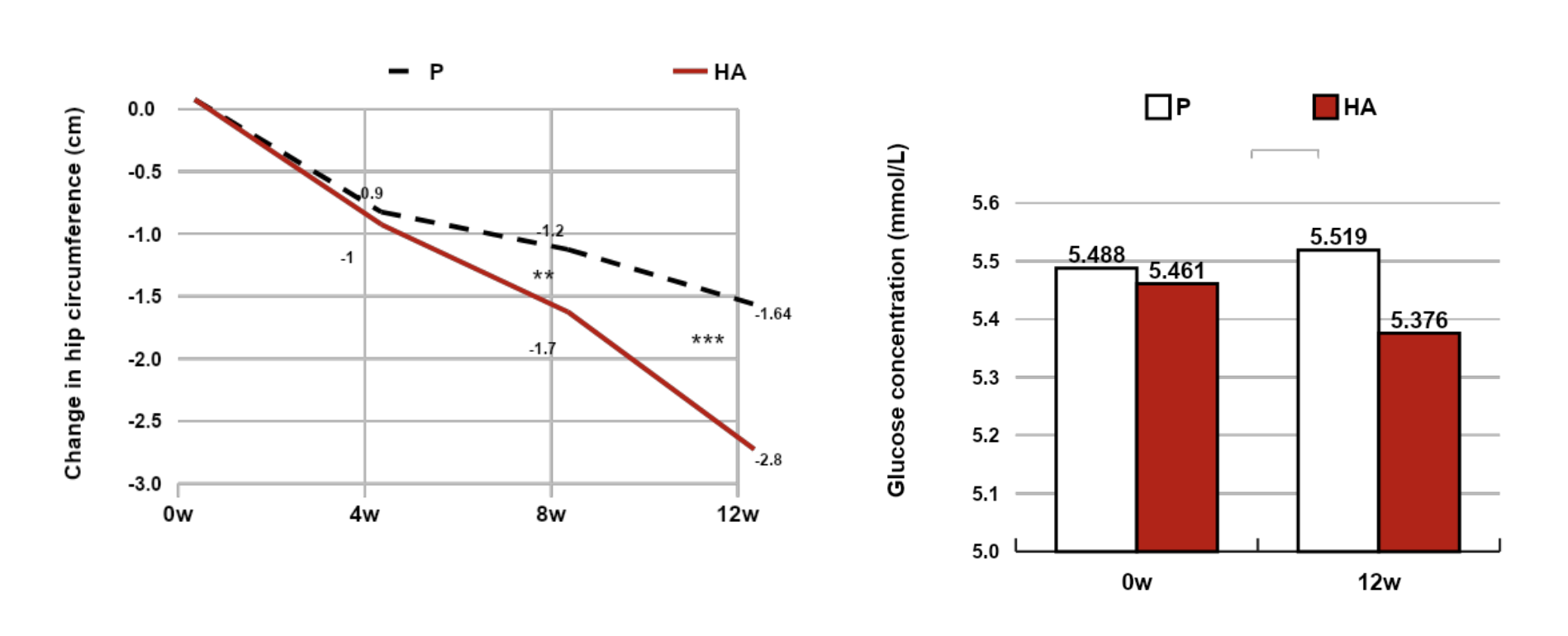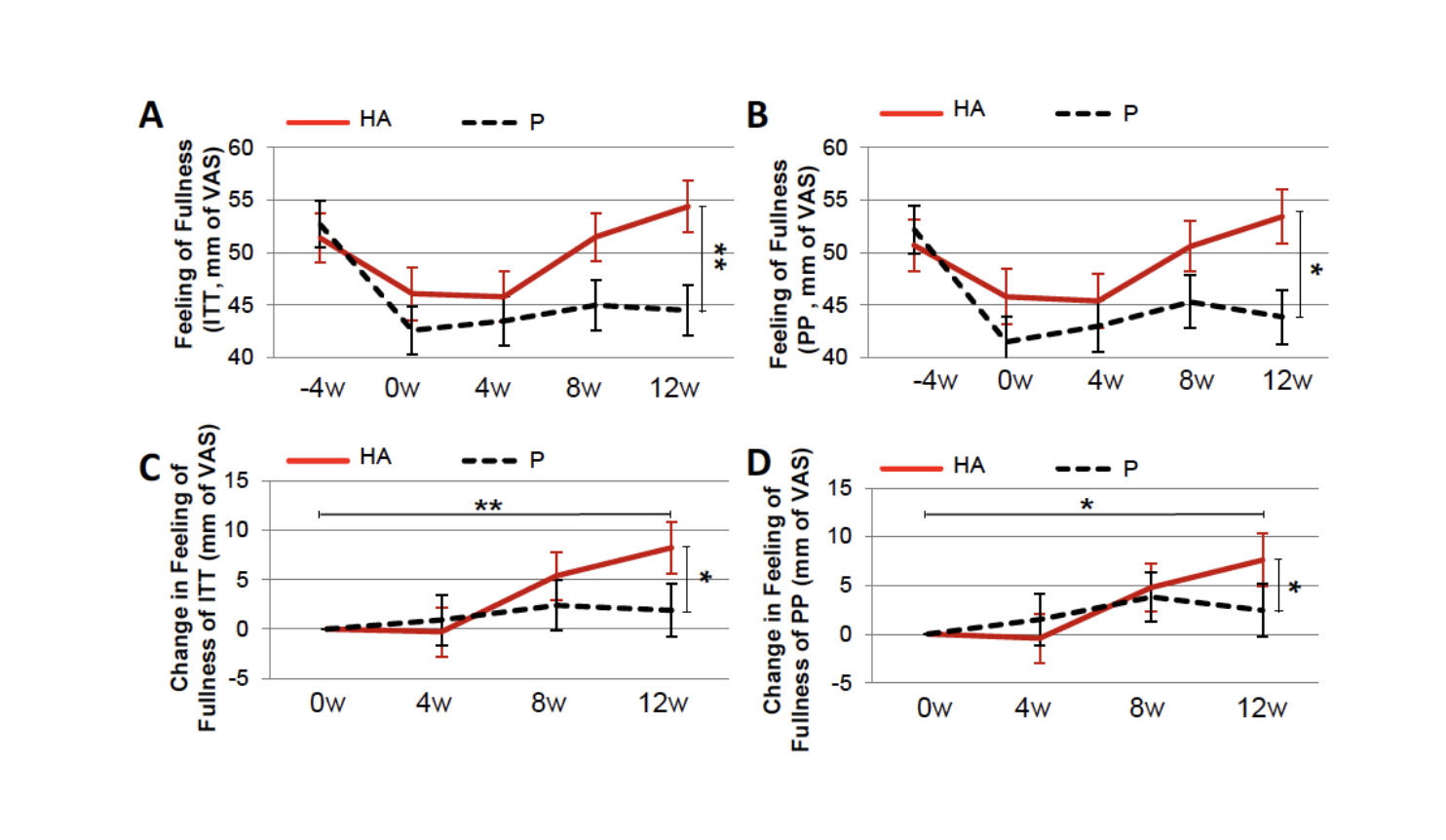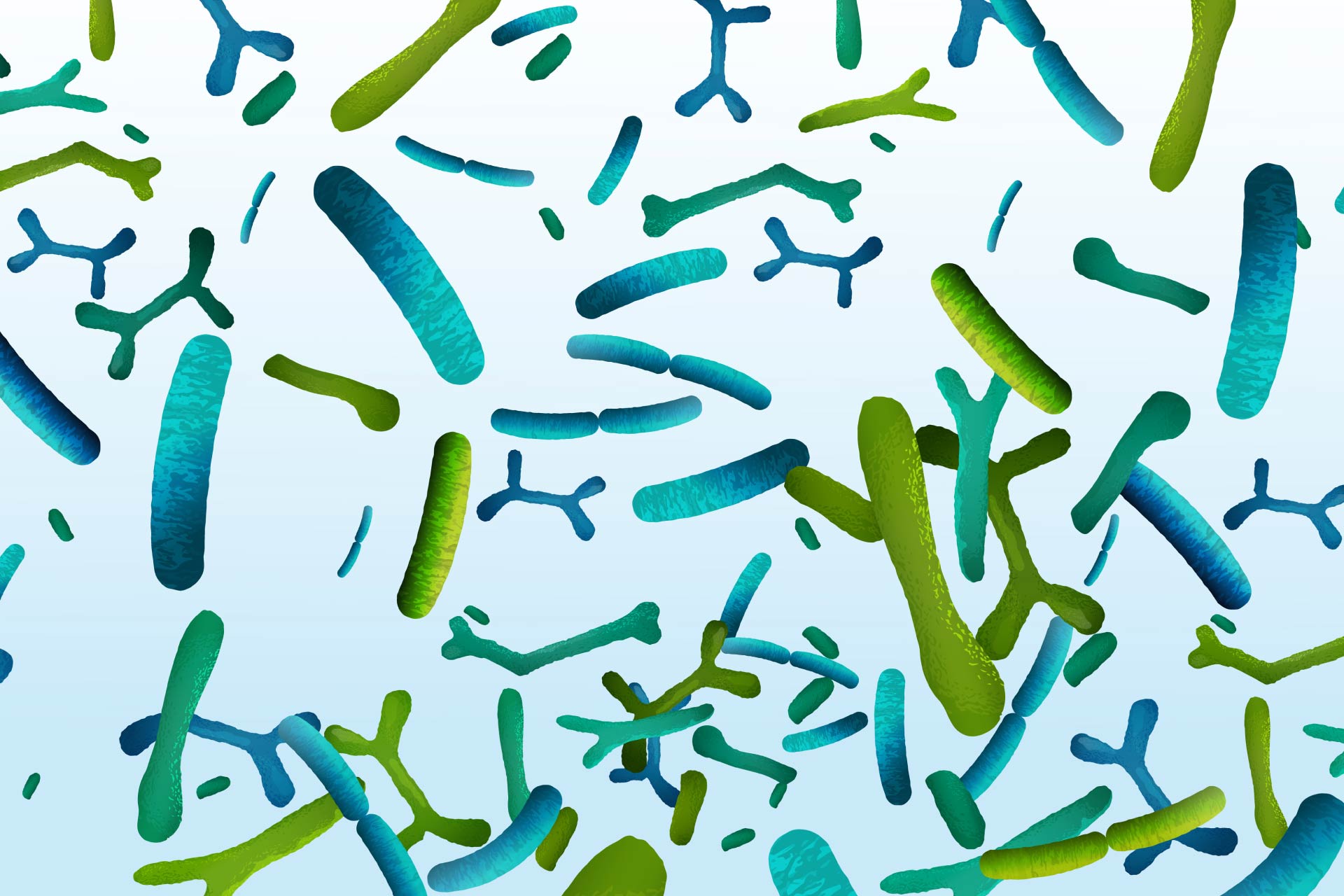The role of the microbiome in the epidemic of obesity is increasingly studied since the study by Jeffrey Gordon and his group observed that the microbiota of lean and obese people present differences, and that the transplantation of microbiota from obese people in mice was causing the mice to gain weight 2,3
The microbiota and its metabolite ClpB: a role in the regulation of appetite
Research on Caseinolytic peptidase B (ClpB) showed this protein is inversely correlated with body weight and body mass index 4,5, and the neuroendocrinologist Serguei Fetissov demonstrated in a review published in Nature Reviews Endocrinology in 2017 6 that metabolites produced by the microbiota can regulate food intake, and in particular ClpB, a conformational antigen mimetic of anorexigenic alpha-MSH 4,6,7
Translating these preliminary results to the clinical setting
After proof-of-concept evaluations in different mice models of obesity published in the International Journal of Obesity and Microorganisms 8,9, Pierre Déchelotte and his colleagues conducted this new multicentric, randomized, double-blind placebo-controlled trial in 236 overweight subjects under 20% caloric restriction 1. The participants were instructed to maintain their normal levels of physical activity during the study and were administered 2 capsules per day of either Hafnia alvei HA4597® at the dose of 100 billion cells per day or a placebo for 12 weeks.
The study confirmed the innocuity of the strain, with an excellent tolerability and no adverse effects.
The primary endpoint was the proportion of subjects having lost at least 3% of their body weight in 12 weeks. Indeed, 38% more subjects in the treated group lost at least 3% of their initial weight than in the placebo group (57.7 vs 41.7 %, p=0.028, Per Protocol analysis). 51% more participants also had a 4% weight loss on HA than on placebo (46.2% vs 30.6%, p=0.024, Per Protocol analysis). The average weight loss observed in the treatment group was 3.6% at 12 weeks, versus 2.9% in the placebo group (unpublished), a high figure linked to the strong effect of the hypocaloric diet.

The participants in the probiotic group saw a further 1.2 cm reduction in hip circumference (p<0.001 at 12 weeks), as well as a significant decrease in blood glucose (p=0.027) and cholesterol (p=0.008 for total cholesterol and p=0.028 for LDL-cholesterol, unpublished).

Importantly, this study also revealed an increased feeling of fullness assessed by visual analog scale (VAS) (p=0.009) in the HA group. In the VAS, a score of 50 means that there is no feeling of hunger. Both groups were under -20% hypocaloric diet, but only the treated group led to feeling of fullness scores above 50. This confirms the mechanism of action of this precision probiotic through the regulation of appetite and this led to a significantly increased level of satisfaction of the subjects from the treated groups compared to the placebo group.

Conclusion
Hafnia alvei HA4597 is considered as a next-generation probiotic (10) because, although it has been used for decades in Normandy cheese maturation, it is the first time this species is used as a probiotic for its benefits to the host. It has also been defined as a precision probiotic (11) thanks to its unique approach with molecular mechanism of action precisely targeting the hormonal pathway of satiety.
Now, with this first publication in humans, “supplementation with Hafnia alvei HA4597® represents an innovative and well-tolerated strategy to enhance the efficacy of dietary advice for the control of excess body weight /…/ and paves the way to the precision medicine and nutrition” as written by the study authors.
The French biotech TargEDys, pioneer in microbiome-based solutions and grounded in 15 years of academic research in collaboration with the prestigious laboratories of Inserm in Rouen, developed a food supplement with 100 billion cells of Hafnia alvei HA4597® per daily dose, available in France and Portugal, and to be launched at the end of 2021 in Italy.
More distribution opportunities are still open, please contact us for more information.
This content was made possible thanks to the unconditional contribution of TargEDys.
References
- Déchelotte, P. et al. The Probiotic Strain Hafnia alvei HA4597® Improves Weight Loss in Overweight Subjects under Moderate Hypocaloric Diet: A Proof-of-Concept, Multicenter Randomized, Double-Blind Placebo-Controlled Study. Nutrients 2021, 13, 1902. https://doi.org/10.3390/nu13061902
- Ridaura VK, Faith JJ, Rey FE, Cheng J, Duncan AE, Kau AL, Griffin NW, Lombard V, Henrissat B, Bain JR, Muehlbauer MJ, Ilkayeva O, Semenkovich CF, Funai K, Hayashi DK, Lyle BJ, Martini MC, Ursell LK, Clemente JC, Van Treuren W, Walters WA, Knight R, Newgard CB, Heath AC, Gordon JI. Gut microbiota from twins discordant for obesity modulate metabolism in mice. Science. 2013 Sep 6;341(6150):1241214. doi: 10.1126/science.1241214.
- Turnbaugh, P., Ley, R., Mahowald, M. et al. An obesity-associated gut microbiome with increased capacity for energy harvest. Nature 444, 1027–1031 (2006). https://doi.org/10.1038/nature05414
- Tennoune N et al. Bacterial ClpB heat-shock protein, an antigen-mimetic of the anorexigenic peptide α-MSH, at the origin of eating disorders. Transl Psychiatry. 2014 Oct 7;4(10):e458. doi: 10.1038/tp.2014.98.
- Arnoriaga-Rodríguez M, et al. Gut bacterial ClpB-like gene function is associated with decreased body weight and a characteristic microbiota profile. 2020 Apr 30;8(1):59. doi: 10.1186/s40168-020-00837-6.
- Fetissov SO. Role of the gut microbiota in host appetite control: bacterial growth to animal feeding behaviour. Nat Rev Endocrinol. 2017 Jan;13(1):11-25. doi: 10.1038/nrendo.2016.150. Epub 2016 Sep 12. PMID: 27616451.
- Fetissov SO et al. Bacterial Protein Mimetic of Peptide Hormone as a New Class of Protein- based Drugs. Curr Med Chem. 2019;26(3):546-553. doi: 10.2174/0929867324666171005110620.
- Legrand, R., Lucas, N., Dominique, M., Azhar, S., Deroissart, C., Le Solliec, M. A., … & Fetissov, S. O. (2020). Commensal Hafnia alvei strain reduces food intake and fat mass in obese mice—A new potential probiotic for appetite and body weight management. International Journal of Obesity, 44(5), 1041-1051.
- Lucas, N., Legrand, R., Deroissart, C., Dominique, M., Azhar, S., Le Solliec, M. A., … & Lambert, G. (2020). Hafnia alvei ha4597 strain reduces food intake and body weight gain and improves body composition, glucose, and lipid metabolism in a mouse model of hyperphagic obesity. Microorganisms, 8(1), 35.
- López-Moreno A, Acuña I, Torres-Sánchez A, Ruiz-Moreno Á, Cerk K, Rivas A, Suárez A, Monteoliva-Sánchez M, Aguilera M. Next Generation Probiotics for Neutralizing Obesogenic Effects: Taxa Culturing Searching Strategies. Nutrients. 2021 May 12;13(5):1617. doi: 10.3390/nu13051617.
- Veiga, Pet al. Moving from Probiotics to Precision Probiotics. Microbiol.2020, 5, 878–880.









